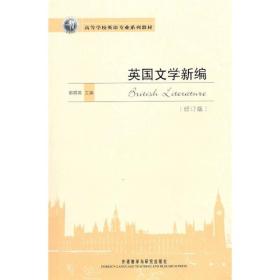您所在的位置:首页 - 知识 - 正文知识
文学书的英文翻译是什么
![]() 奚诗科技
05-02
【知识】
460人已围观
奚诗科技
05-02
【知识】
460人已围观
摘要Title:TranslationofLiteraryBooksIntherealmofliterature,translatingbooksfromonelanguagetoanotherrequi
Title: Translation of Literary Books
In the realm of literature, translating books from one language to another requires both linguistic expertise and a deep understanding of the nuances of the source text. The process of translating literary works involves more than just substituting words; it involves capturing the essence, style, and cultural context of the original writing while presenting it in a new linguistic framework. Let's delve into the complexities and considerations involved in translating literary books into English.
Understanding the Source Material
The first step in translating a literary book is to thoroughly understand the source material. This involves not only comprehending the plot and characters but also grasping the author's writing style, tone, and underlying themes. A deep understanding of cultural references and historical context is essential for accurately conveying the intended meaning to a new audience.
Linguistic Mastery
Translating literary works requires exceptional linguistic skills in both the source language and the target language. A translator must possess a profound knowledge of vocabulary, idiomatic expressions, and grammatical structures in both languages to effectively convey the richness of the original text.

Cultural Sensitivity
Literature is deeply rooted in culture, and a successful translation must preserve cultural nuances. Translators often face the challenge of finding equivalent expressions or adapting cultural references to resonate with the target audience without compromising the integrity of the original work.
Translating Style and Voice
One of the most challenging aspects of literary translation is maintaining the author's unique style and voice. A skilled translator must replicate the rhythm, flow, and emotional impact of the original prose while adhering to the linguistic norms of the target language.
Challenges and Solutions
Translating literary books presents several challenges, such as untranslatable words, idiomatic expressions, and wordplay. Translators often employ creative strategies such as paraphrasing, cultural adaptation, or even creating new terms to convey the intended meaning effectively.
Importance of Editing and Review
After translating a literary book, thorough editing and review are crucial. Editors play a vital role in ensuring the accuracy, consistency, and readability of the translated text. Multiple rounds of revisions may be necessary to refine the translation and capture the author's voice authentically.
Conclusion
In conclusion, translating literary books into English requires more than linguistic proficiency; it demands a deep appreciation for literature and a commitment to preserving the integrity of the original work. A successful literary translation is a harmonious blend of linguistic precision, cultural sensitivity, and creative adaptation, offering readers an opportunity to explore diverse literary traditions from around the world.
For further inquiries or specific questions related to literary translation, feel free to reach out. Happy reading and translating!
Tags: 文学书的英语怎么写 文学书英文怎么读 文学书籍的英文 文学书的英文 文学书的英文翻译怎么写
上一篇: 新能源汽车电机控制器的工作原理
下一篇: 儿童作家杨红樱的简介


